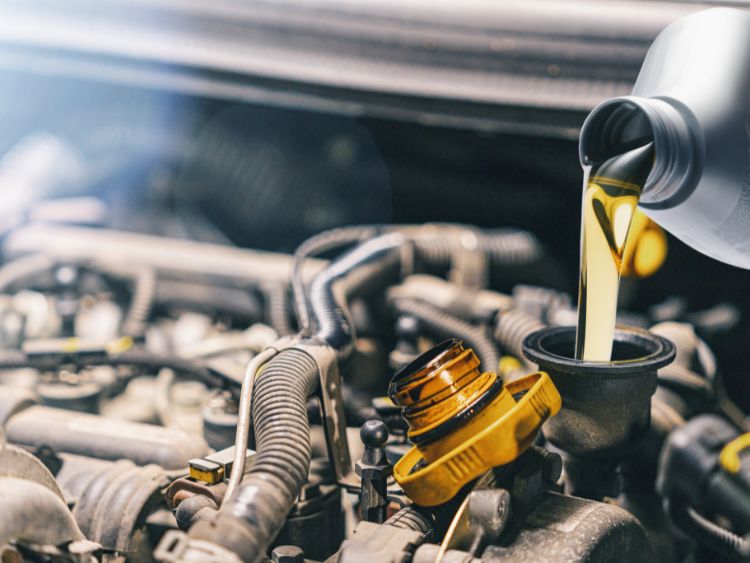Alright, let’s dive into the world of car maintenance, focusing on the ever-so-crucial Hyundai oil change. Whether you’re a seasoned Hyundai owner or a newbie to the brand, understanding the ins and outs of keeping your engine lubricated and happy is key. We’re not just talking about slapping on some oil and calling it a day. Oh no, we’re diving deep to ensure your Hyundai keeps purring like a kitten on a warm Sunday afternoon. So buckle up, because we’re about to embark on an oil change journey that’ll make you the go-to person among your friends for car advice.
Why Hyundai Oil Changes are a Big Deal
You might wonder, “Why all the fuss about an oil change?” Well, let me tell you, it’s more than just a routine check-up; it’s the lifeblood of your Hyundai. Here’s the lowdown:
- Engine Protection: Oil lubricates the moving parts of your engine, reducing wear and tear.
- Cooling Components: Besides lubrication, oil helps to cool down engine components, preventing overheating.
- Cleanliness: Over time, oil collects dirt and debris. Changing it regularly keeps your engine clean.
- Performance: Fresh oil ensures your Hyundai runs efficiently, giving you the best performance and fuel economy.
When to Change Your Oil: Timing is Everything
The rule of thumb for oil changes has evolved. Gone are the days of the universal 3,000-mile mantra. Here’s how you can pinpoint the perfect timing for your Hyundai:
- Check Your Manual: Your Hyundai’s manual isn’t just for glove box decoration. It contains specific recommendations for oil change intervals.
- Consider Your Driving Conditions: If you’re regularly hitting the road in harsh conditions (think extreme temperatures, towing, or lots of stop-and-go traffic), you might need to change your oil more frequently.
- Modern Advances: Newer Hyundai models are equipped with oil life monitoring systems. These handy tools alert you when it’s time for a change, taking the guesswork out of the equation.
Choosing the Right Oil: Not All Oils are Created Equal
Selecting the right oil for your Hyundai isn’t as daunting as it sounds. Here are a few pointers:
- Viscosity Grades: Your owner’s manual will specify the right viscosity (thickness) of oil needed for your engine.
- Synthetic vs. Conventional: Synthetic oils are engineered to perform better at extreme temperatures and last longer. However, consult your manual because some Hyundais prefer conventional oil.
- Brands Matter: Stick to reputable oil brands. They often offer formulas specifically designed for Hyundai engines.
The Step-by-Step Hyundai Oil Change
Roll up your sleeves, because we’re getting into the nitty-gritty. Here’s how you can change your Hyundai’s oil:
- Gather Your Supplies: You’ll need the right grade and amount of oil, a new oil filter, a wrench, an oil pan, and gloves for cleanliness.
- Prep Your Hyundai: Make sure your car is on a flat surface and give the engine a chance to cool down.
- Drain the Old Oil: Remove the oil cap and drain plug to let the old oil flow out into your oil pan.
- Replace the Oil Filter: Take off the old oil filter and replace it with a new one. Make sure to lubricate the seal of the new filter with a dab of new oil.
- Add New Oil: Once the old oil is completely drained and the new filter is on, pour in the fresh oil.
- Check Your Levels: After filling, turn on your car for a few minutes, then turn it off and check the oil level. Add more if necessary.
FAQs: Your Burning Questions Answered
Q: How often should I check my oil level? A: It’s wise to check your oil level monthly. This quick check can alert you to leaks or high oil consumption.
Q: Can I switch between synthetic and conventional oil? A: Generally, yes, but it’s best to stick to what’s recommended in your manual. If you’re switching to synthetic for better performance and longevity, stick with it for future changes.
Q: What happens if I skip an oil change? A: Skipping oil changes can lead to a buildup of sludge and debris in your engine, reducing its efficiency and potentially causing damage.
Summary: Keeping Your Hyundai Happy
Congrats! You’ve just taken a deep dive into the world of Hyundai oil changes. Remember, regular oil changes are the cornerstone of keeping your Hyundai running smoothly and efficiently. It’s not just about extending the life of your car; it’s about ensuring it performs at its peak, keeping you safe on the road. So, next time your Hyundai is due for an oil change, roll up those sleeves or head to your trusted mechanic. Your Hyundai will thank you for it, and so will your wallet in the long run. Keep on cruising, and remember, a well-oiled machine is a happy machine!





